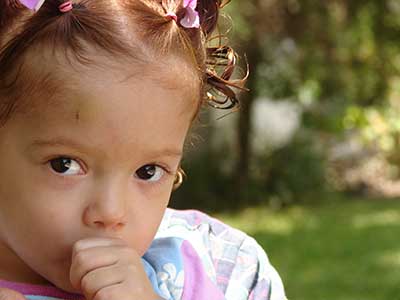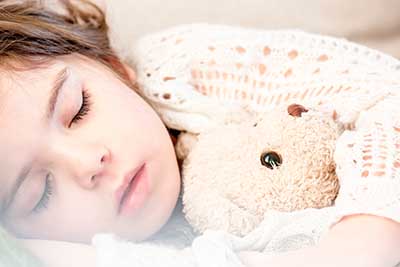Recommended reading by dr. wells
Hush Buddy's medical advisor shares THE LATEST ON TODDLER SLEEP

“Sleep is essential for toddlers growing brains and bodies.
Studies consistently prove parents who properly manage bedtimes have the best outcomes.”
Mary Ellen Wells, PhD, RPSGT, R. EEG T., R. NCS T.
Hush Buddy Advisor, Dir & Assoc Professor, Neurodiagnostics and Sleep Science

PROPER DEVELOPMENT
SLEEP IS VITAL FOR GROWING MINDS AND BODIES

- Sleep contributes to reading, math, and spatial awareness
- Less than 10 hours of sleep per night before age 3 linked to language and reading problems, and ADHD
- 11,000 children studied
SLEEP SCIENCE
THERE'S A RECIPE FOR SLEEP

- A child’s sleep improves when parents learn about best sleep practices
- Positive, consistent routines improve bedtime and sleep
- A paused response before intervening helps children learn to self-soothe
WHAT PARENTS CAN DO
BUILDING THE BEST BEDTIME FOR YOUR CHILD

-
- Strive for 12 to 14 hours of sleep for your 2-4 year old
- Consistent routines shouldn’t vary by more than 15 minutes
- Here are common challenges for parents, and tips to overcome them
PROPER DEVELOPMENT
Short sleep duration significantly and independently increase children’s odds of becoming overweight.
PROPER DEVELOPMENT
The findings may provide insights into the potential role of sleep problems in the development of autism spectrum disorder (ASD).
PROPER DEVELOPMENT
Inadequate or poor quality sleep in early childhood impairs social–emotional and cognitive function via effects on the developing brain and increases obesity risk via hormonal and endocrine effects.
PROPER DEVELOPMENT
Broadly speaking, it might be argued that the most fundamental requirements for healthy growth and development in young children include…
PROPER DEVELOPMENT
In this month’s British Medical Journal, there’s a report on a study demonstrating the relationship of sleep to brain development in kids…
PROPER DEVELOPMENT
Inadequate or poor quality sleep in early childhood impairs social–emotional and cognitive function via effects on the developing brain and increases obesity risk via hormonal and endocrine effects.
SLEEP SCIENCE
Sleep hygiene, which includes practices like providing a cool and quiet sleeping environment or reading before bed time to help kids unwind, is…
SLEEP SCIENCE
New research shows that preschoolers who are put to bed before 8 PM have a slimmer chance of becoming obese during their teen years

SLEEP SCIENCE
Consider common preschool bedtime problems — and what to do about them. The result could be a good night’s sleep for the entire family.

SLEEP SCIENCE
An interactive resource from the National Institutes of Health to make your child’s room safe!
WHAT PARENTS CAN DO
Advice on topics from night terrors to bed wetting.
WHAT PARENTS CAN DO
While each baby reacts a little differently to sleep training and there are varying methods, there are a few key points to keep in mind.
WHAT PARENTS CAN DO
Free bedtime story apps for iPad, Kindle Fire and Android devices from the American Academy of Sleep Medicine

